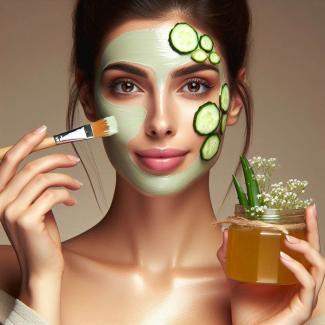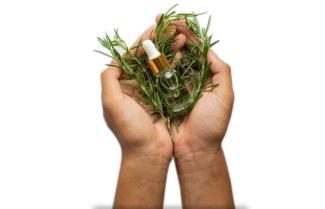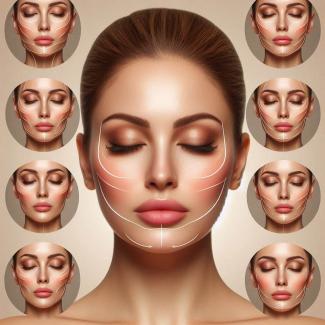
The desire for youthful, radiant skin is timeless, and as more people shift towards holistic and natural skincare, the importance of using plant-based solutions for skin rejuvenation has grown. Plants offer a rich source of vitamins, antioxidants, and essential nutrients that can help restore the skin’s elasticity, minimize signs of aging, and promote a glowing complexion. This detailed exploration will guide you through the natural plants that are most effective for skin rejuvenation, their benefits, and how to incorporate them into your daily routine.
1. Aloe Vera: The Skin-Healing Miracle Plant
One of the most well-known plants for skin health is Aloe Vera. Its use for medicinal and skincare purposes dates back thousands of years to ancient civilizations, and for a good reason. Aloe vera gel is packed with over 75 active compounds, including vitamins A, C, and E, which are powerful antioxidants that fight free radicals, helping to repair and prevent skin damage caused by environmental stressors.
Benefits:
- Deep hydration: Aloe vera penetrates the skin easily, helping to deliver moisture deep into the skin layers, which is crucial for preventing dryness and reducing the appearance of fine lines.
- Anti-inflammatory properties: Aloe soothes irritated skin, reducing redness, inflammation, and swelling, making it ideal for sensitive skin or conditions like eczema.
- Boosts collagen production: The enzymes in aloe vera can help stimulate collagen production, improving the skin's firmness and elasticity, giving a more youthful appearance.
- Heals damaged skin: It accelerates the healing of minor wounds, cuts, and sunburns, leaving your skin smoother and more even.
How to Use:
- Direct application: Cut an aloe vera leaf and extract the gel. Apply it directly to the skin as a hydrating mask or use it as a moisturizer.
- Aloe-infused products: Aloe vera can be found in numerous creams, lotions, and serums designed for skin rejuvenation.
2. Rosehip Oil: Nature's Retinol Alternative
Extracted from the seeds of the wild rose bush, rosehip oil is another powerful natural ingredient for skin rejuvenation. Rich in essential fatty acids like omega-3 and omega-6, as well as vitamins A and C, rosehip oil provides deep nourishment for the skin, improving both texture and tone.
Benefits:
- Fades scars and hyperpigmentation: Rosehip oil’s high concentration of vitamin C aids in the skin's natural regeneration, helping to reduce the appearance of scars, age spots, and sun damage.
- Boosts collagen production: The natural vitamin A (retinoic acid) in rosehip oil encourages skin cell turnover and collagen production, making the skin look plumper and more youthful.
- Anti-aging properties: Its rich blend of antioxidants helps to reduce the appearance of fine lines and wrinkles, while its fatty acids help keep the skin firm and hydrated.
- Non-comedogenic: Despite being an oil, rosehip oil is lightweight and absorbs easily, making it suitable for all skin types, including oily and acne-prone skin.
How to Use:
- Facial oil: Apply 2-3 drops of rosehip oil after cleansing your face in the evening. Massage it into your skin for maximum absorption.
- Mix with moisturizer: You can add a few drops of rosehip oil to your daily moisturizer for an added boost of hydration and nourishment.
3. Green Tea: The Antioxidant Powerhouse
Green tea is widely celebrated for its health benefits when consumed, but its topical use is just as effective for rejuvenating the skin. Green tea extract contains polyphenols, particularly epigallocatechin gallate (EGCG), which has strong anti-inflammatory and antioxidant properties.
Benefits:
- Fights free radicals: The antioxidants in green tea neutralize free radicals, which are responsible for premature aging and skin damage, helping to maintain youthful skin.
- Reduces inflammation: Green tea is excellent for calming irritated skin and reducing redness, especially in people with rosacea or acne-prone skin.
- Protects from UV damage: The polyphenols in green tea have been shown to protect against UV-induced damage when applied topically, helping to prevent sunspots and fine lines caused by exposure to the sun.
- Detoxifies the skin: Green tea helps to detoxify the skin, removing impurities and excess oil that can clog pores and lead to breakouts.
How to Use:
- Green tea toner: Brew a strong cup of green tea, let it cool, and use it as a refreshing toner to reduce inflammation and hydrate the skin.
- Green tea mask: Combine green tea powder with honey or yogurt to create a mask that brightens and tightens the skin.
4. Turmeric: The Golden Elixir for Skin Brightening
Turmeric, a staple in Indian Ayurveda, is a powerful natural plant for rejuvenating the skin. Its active compound, curcumin, has potent antioxidant and anti-inflammatory effects, making it an excellent choice for promoting an even, glowing complexion.
Benefits:
- Brightens the skin: Turmeric can reduce dark spots, hyperpigmentation, and dullness, giving the skin a radiant glow.
- Anti-inflammatory: Its anti-inflammatory properties help to calm the skin, making it beneficial for those suffering from acne, eczema, or psoriasis.
- Fights signs of aging: Turmeric’s antioxidants fight free radicals that contribute to the aging process, helping to reduce fine lines and wrinkles.
- Improves skin tone: Regular use of turmeric can even out skin tone and enhance the overall appearance of the skin.
How to Use:
- Turmeric face mask: Mix turmeric powder with yogurt and honey to create a brightening face mask. Apply it to the skin for 10-15 minutes and rinse off for a glowing complexion.
- Spot treatment: Turmeric paste (made with water or rose water) can be applied to dark spots or acne scars to lighten and reduce their appearance over time.
5. Jojoba Oil: Balancing Hydration
Jojoba oil, derived from the seeds of the jojoba plant, is one of the best natural oils for skin hydration and rejuvenation. It closely mimics the skin's natural sebum, making it highly effective in balancing oil production and keeping the skin moisturized.
Benefits:
- Balances oil production: Jojoba oil can regulate the production of oil in the skin, making it beneficial for both oily and dry skin types.
- Anti-inflammatory: Its anti-inflammatory properties help to soothe irritated skin and reduce redness, making it ideal for sensitive skin.
- Non-comedogenic: Jojoba oil does not clog pores, making it an excellent choice for acne-prone skin while still providing deep hydration.
- Rich in vitamins: Jojoba oil contains vitamins E and B-complex, which nourish the skin and promote healing, contributing to smoother and more youthful-looking skin.
How to Use:
- Moisturizer: Apply jojoba oil directly to the skin after cleansing as a lightweight moisturizer, or mix a few drops with your favorite lotion.
- Facial cleanser: Jojoba oil can also be used as a natural facial cleanser, gently removing dirt and makeup while leaving the skin soft and hydrated.
6. Lavender: Calming and Healing
Lavender is more than just a fragrant flower. Lavender oil is renowned for its calming and healing properties, both for the mind and the skin. Its antimicrobial and anti-inflammatory properties make it ideal for soothing irritated skin and promoting healing.
Benefits:
- Heals acne and blemishes: Lavender oil has antibacterial properties that help prevent and treat acne, while its soothing nature reduces inflammation and redness.
- Promotes wound healing: Lavender oil accelerates the healing of minor cuts, burns, and insect bites, minimizing scarring.
- Calms sensitive skin: Its gentle nature makes it suitable for all skin types, especially sensitive or irritated skin, providing relief from itchiness and irritation.
- Promotes relaxation: The scent of lavender is known for its calming effects, reducing stress, which in turn helps to prevent stress-related skin issues like breakouts.
How to Use:
- Spot treatment: Dilute lavender essential oil with a carrier oil (like jojoba or almond oil) and apply it to blemishes or inflamed areas of the skin.
- Facial steam: Add a few drops of lavender oil to a bowl of hot water and allow the steam to penetrate your skin, opening up your pores and promoting a deep cleanse.
7. Chamomile: Soothing and Anti-Inflammatory
Chamomile is often associated with its calming tea, but it also provides incredible benefits when applied topically to the skin. Chamomile extract is packed with flavonoids and antioxidants that protect the skin and reduce inflammation.
Benefits:
- Reduces redness and irritation: Chamomile’s anti-inflammatory properties make it effective in reducing redness and soothing sensitive skin.
- Fights acne: Chamomile’s antibacterial properties help to prevent and treat acne by keeping pores clear and calm.
- Heals and regenerates the skin: Chamomile encourages the healing of minor wounds and helps regenerate skin cells, promoting a smoother complexion.
- Anti-aging properties: The antioxidants in chamomile protect the skin from oxidative stress, which is a major cause of premature aging.
How to Use:
- Chamomile tea toner: Brew a cup of chamomile tea, let it cool, and use it as a toner to soothe and refresh the skin.
- Chamomile-infused oil: Infuse chamomile flowers in a carrier oil and apply it to your skin for a calming and moisturizing treatment.
8. Calendula: The Skin Soother
Calendula, also known as marigold, is a flower with powerful healing and anti-inflammatory properties. It’s commonly used to treat skin irritations and wounds, but it’s also excellent for rejuvenating the skin and maintaining its youthful glow.
Benefits:
- Reduces inflammation: Calendula soothes inflamed skin, making it beneficial for those with conditions like eczema, rosacea, or sensitive skin.
- Promotes healing: Calendula stimulates collagen production and increases blood flow to the skin, promoting faster healing of wounds and scars.
- Moisturizes the skin: Its hydrating properties help to lock in moisture, preventing dryness and keeping the skin soft and supple.
- Antioxidant-rich: Calendula’s antioxidants protect the skin from free radical damage, reducing the signs of aging.
How to Use:
- Calendula cream: Use calendula-infused creams or salves to treat dry, irritated, or damaged skin.
- DIY calendula oil: You can infuse calendula flowers in a carrier oil like olive or almond oil and apply it to your skin as a natural moisturizer.
Natural plant-based ingredients provide a gentle yet powerful way to rejuvenate and maintain healthy skin. Incorporating plants like aloe vera, rosehip oil, green tea, turmeric, jojoba oil, lavender, chamomile, and calendula into your skincare routine can deliver remarkable results. These plants offer an array of benefits, from deep hydration and anti-aging properties to reducing inflammation and promoting healing. By harnessing the power of nature, you can rejuvenate your skin, restoring its vitality and youthful appearance without the need for harsh chemicals or synthetic ingredients.
What results can we expect if we take care of our skin regularly?
Taking care of your skin regularly can lead to a wide range of positive outcomes. The benefits of a consistent skincare routine go beyond just aesthetics, promoting overall skin health and protecting it from environmental damage. Here's what you can expect when you commit to regular skincare:
1. Improved Skin Texture
Regular skincare helps remove dead skin cells, revealing smoother, softer skin. Cleansing, exfoliating, and moisturizing ensure that the skin feels more refined, minimizing rough patches and promoting a more even texture.
2. Reduced Signs of Aging
With consistent use of anti-aging products such as retinoids, antioxidants (like vitamin C), and moisturizers with hyaluronic acid, you can significantly reduce the appearance of fine lines, wrinkles, and age spots. Sunscreen, a critical part of any routine, protects the skin from harmful UV rays, which are one of the leading causes of premature aging.
3. Better Hydration
Regularly moisturizing keeps your skin well-hydrated, preventing dryness and flakiness. Hydrated skin looks plumper, more radiant, and less prone to irritation and breakouts. This is especially important for people with dry or sensitive skin.
4. Even Skin Tone
By using products that target hyperpigmentation, like vitamin C serums or niacinamide, along with consistent sunscreen use, regular skincare can help reduce the appearance of dark spots, sun damage, and uneven skin tone. Over time, you’ll notice a brighter, more balanced complexion.
5. Fewer Breakouts
Consistent cleansing, exfoliation, and using non-comedogenic products help keep pores clear, preventing acne and other skin issues. Over time, this reduces the frequency and severity of breakouts, leading to clearer, healthier skin.
6. Increased Skin Elasticity
Using products rich in collagen-boosting ingredients (like peptides, retinoids, or antioxidants) enhances the skin’s elasticity. This means your skin will be firmer and more resilient, preventing sagging as you age.
7. Protection from Environmental Damage
With regular use of antioxidant-rich serums, sunscreens, and barrier-repair creams, your skin will be better protected against pollutants, UV rays, and other environmental stressors. This protection helps reduce the risk of premature aging and skin conditions like hyperpigmentation or redness.
8. Healthier Skin Barrier
A consistent skincare routine strengthens the skin’s natural protective barrier, which helps retain moisture and defend against harmful elements. A healthy skin barrier reduces sensitivity, irritation, and redness.
9. Glowing, Radiant Skin
Exfoliation, hydration, and the use of brightening products lead to radiant skin. Over time, your complexion will appear more vibrant, glowing, and refreshed, as regular care encourages the natural regeneration process of skin cells.
10. Prevention of Future Skin Issues
Taking care of your skin today can prevent future problems. Consistent use of sunscreen reduces the risk of skin cancer, while regular moisturization and cleansing prevent issues like acne, rosacea, and eczema from worsening.
11. Increased Confidence
As your skin becomes healthier, smoother, and more radiant, you may notice an increase in confidence. Feeling good about your skin can have a positive impact on your overall well-being and self-esteem.
Regular skincare is an investment in both your skin’s immediate appearance and its long-term health. By incorporating a consistent routine tailored to your skin’s needs, you can expect clearer, smoother, and more youthful-looking skin, while also preventing future damage. The key is consistency—regular care can yield visible and lasting improvements over time.






